This downtown Montreal sleep oasis is a dreamy fusion of art and tech with nooks to nap
For insomniacs and siesta seekers. 💤
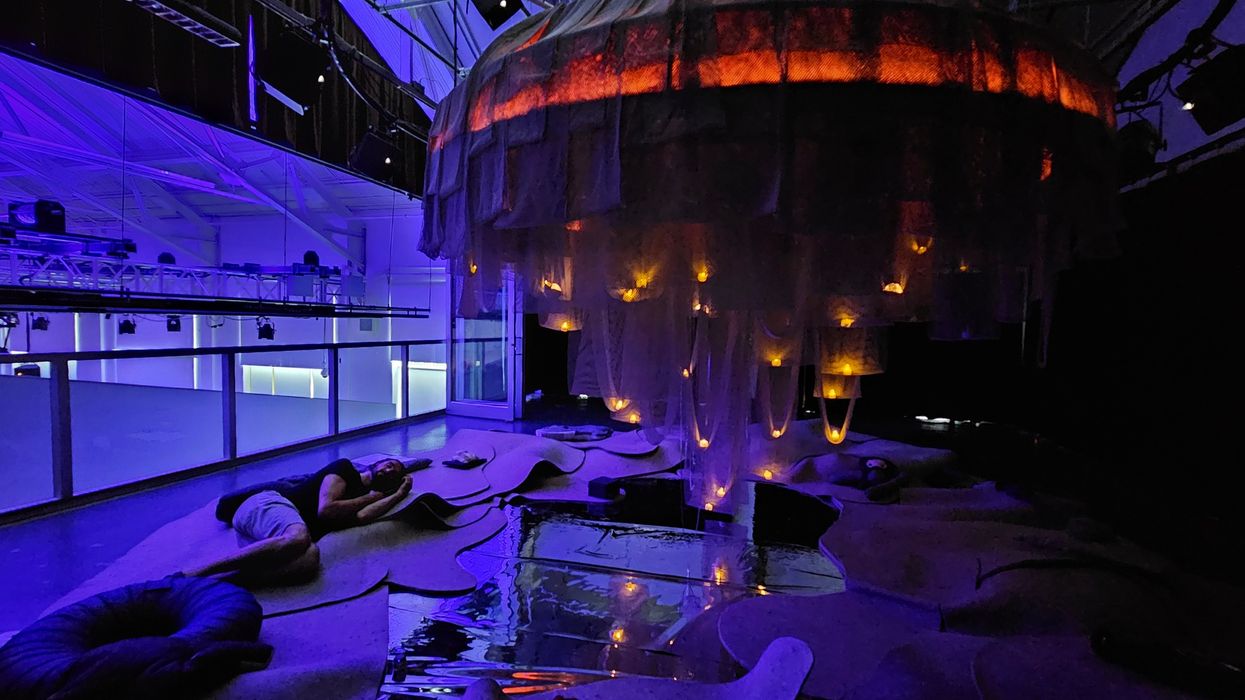
Someone reclines on cushions under "The Lantern," a glowing installation, at the "InSomnolence" exhibit in downtown Montreal.
Sleep may be a basic human need, but "InSomnolence" is far from ordinary. Until July 13, downtown Montreal is hosting a unique playground for night owls, day nappers, and every circadian rhythm on the spectrum.
The imaginative exhibit uses art, science, and technology to deconstruct your perceptions of sleep and encourage sensory exploration into the realms of slumber and dreams.
"Think of it as a potential napping zone in the city," project co-founder Alanna Thain told MTL Blog, entering the space through an inconspicuous courtyard near Place des Arts.
"You're not only invited but given lots of different means to lie down and rest and spend time. If you come here to explore, or you close your eyes for the entirety of the exhibition, both actions would be completely correct," she said.
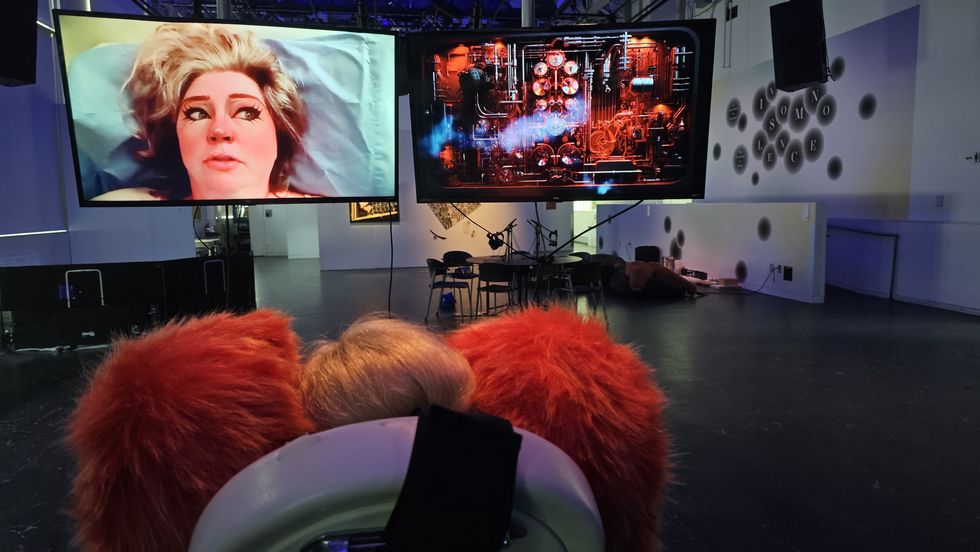
Born of creative minds from multiple Montreal universities, in collaboration with international and local artists, "InSomnolence" is a compelling and thought-provoking examination of sleep as a paradox: a personal but also universal experience for living beings.
As you meander through the exhibit, installations curated by Alanna Thain (McGill), Aleksandra Kaminska (UdeM), and Marianne Cloutier (MUHC) will stimulate your senses. From live soundtracks to dream avatars, each element is designed to calm the body and nudge the mind toward self-reflection.
"Curiosity is key because often, particularly if you have troubled sleep, it becomes a difficult approach because you're afraid," said Thain.
"You may be afraid you're not going to sleep. If you have nightmares, you might be afraid to sleep… But if you're open about what sleep means for you and what you need to feel restful, that relationship can change," she said.
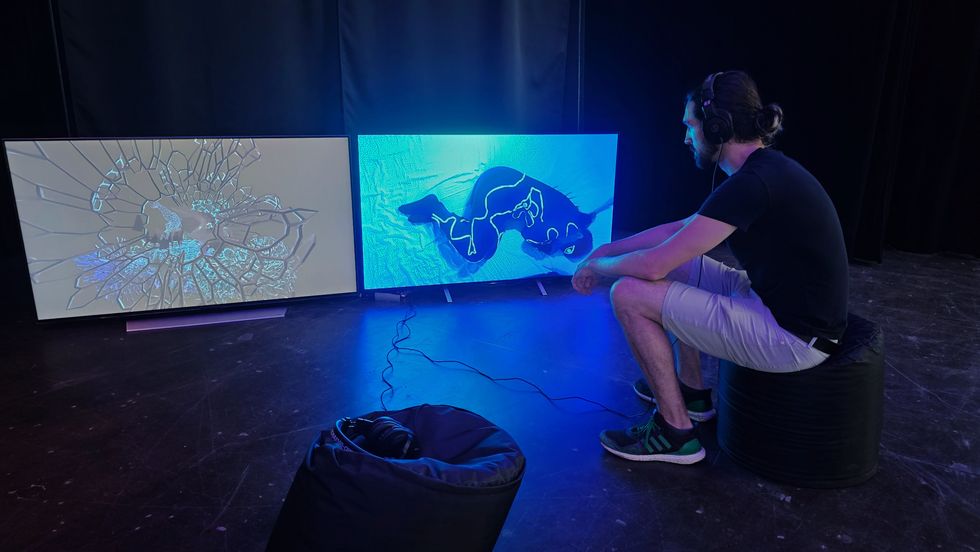
One eye-catching installation, titled "How to Stay Sleepy," features an assortment of soft mats and oddly shaped objects, all a soothing shade of blue, created by local art collective doux soft club. The pieces are "playable and remixable," Thain explained, to encourage visitors to interact with the art and find new ways for their bodies to be comfortable.
Pushing two of the curved pieces together and leaning onto them offers an ergonomic way to stretch, for instance. Or you can recline on the floor mats and listen to soothing, ambient soundscapes made from recordings of Yayoi Kusama's infinity rooms and designed to evoke semi-sleepiness.
"People are hungry for rest. But we are not often invited to rest in public. Often that's dangerous, or hostile architecture prevents you from getting comfortable on a bench. Unless you're a certain kind of body, you're not even really authorized to sleep in public," said Thain.
"A lot of the artists are interested in inviting bodies to find a form of rest that's sometimes hard to find these days," she said.
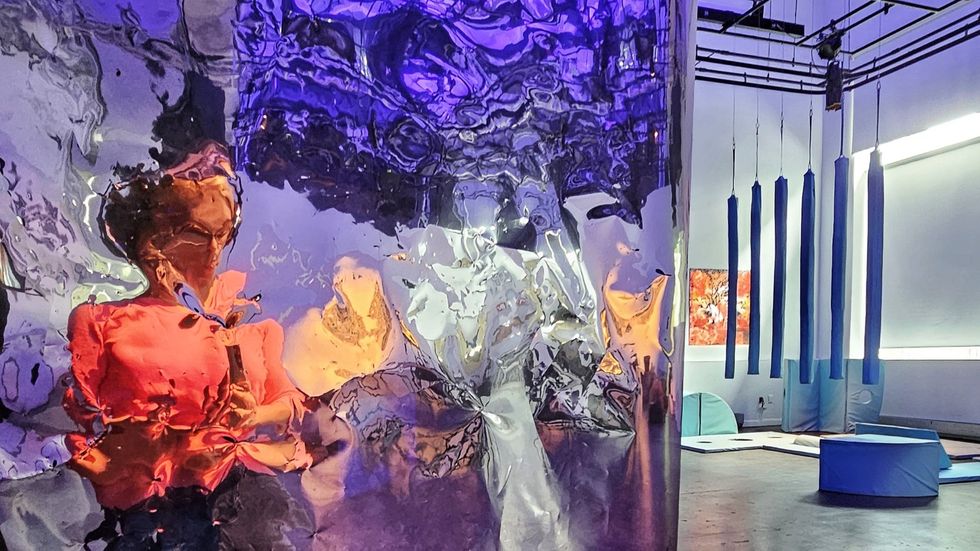
Among the more uncanny offerings is an installation by Montreal artist Dayna McLeod, which capitalizes on her experiences with sleep disturbances. McLeod developed AI-generated avatars to share odd dream sequences, adding an amusing layer to the exploration of self and sleep. Visitors sit in a recliner and don oversized fluffy red headphones to hear her bizarre narratives.
Another compelling feature is "Morphai," by Yiou Wang, who also explores the notion of a dream avatar. Using biometric data from sleep performers, Wang animates fantastical creations, offering a glimpse into the unconscious in motion. You can sit on floor cushions to take in the mesmerizing visuals.
Meanwhile, Montreal artist Manon De Pauw uses unique materials to simulate the surreal sensation of being in a dream state and invited visitors to reflect on the waking and sleeping versions of themselves.
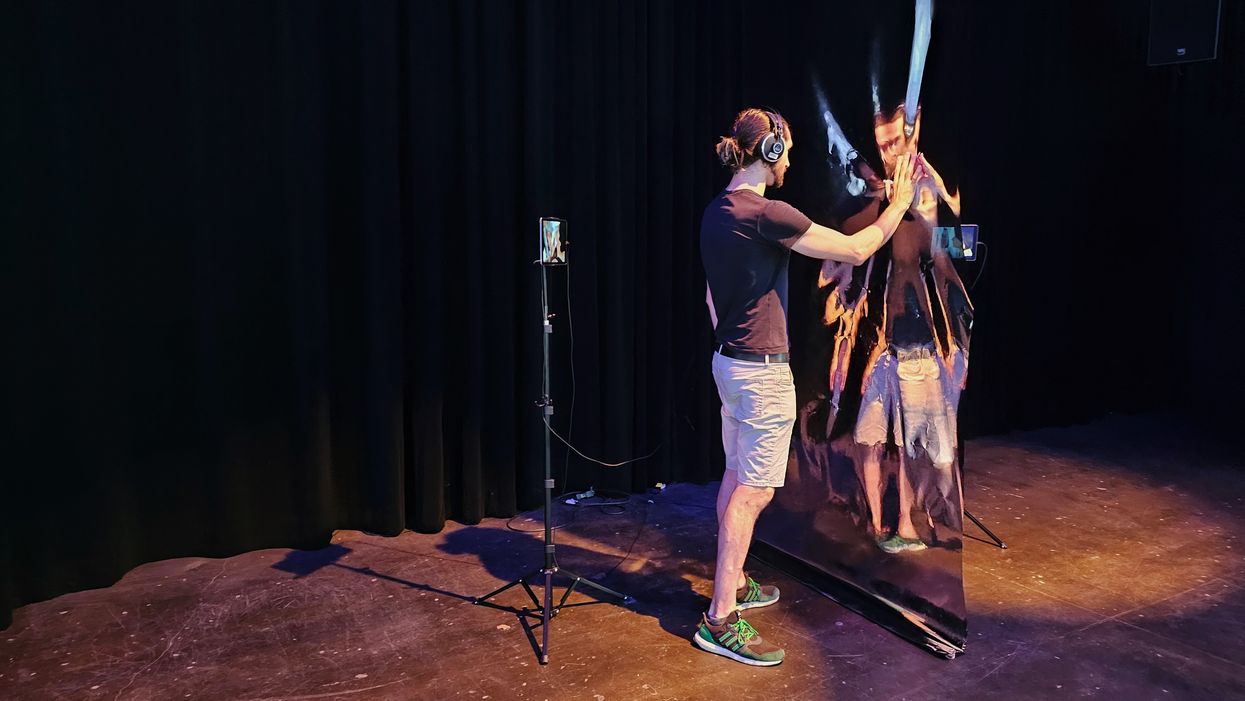
The exhibit also features a project called "Radio Insomnia" by Anbelle Lacroix and Nicolas Montgermont. With a 72-hour-long after-hours program, the duo intends to transform insomnia from a space of fear and anxiety to one of curiosity and connection.
The creators will host a special late-night program in the exhibit space on July 8, keeping it open until 6 a.m. the next day for an in-depth live performance.
"InSomnolence" will also host a series of events, such as workshops, movie screenings, and a Q&A session with a sleep scientist.
Through avant-garde explorations, the exhibit not only encourages the exploration of sleep habits but also challenges preconceived notions about rest and comfort.
"The best sleep is different sleep. All bodies have different needs. There's not one formula, there's not a right way to sleep. But there's lots of room for experimenting," said Kaminska, one of the masterminds behind the exhibition.
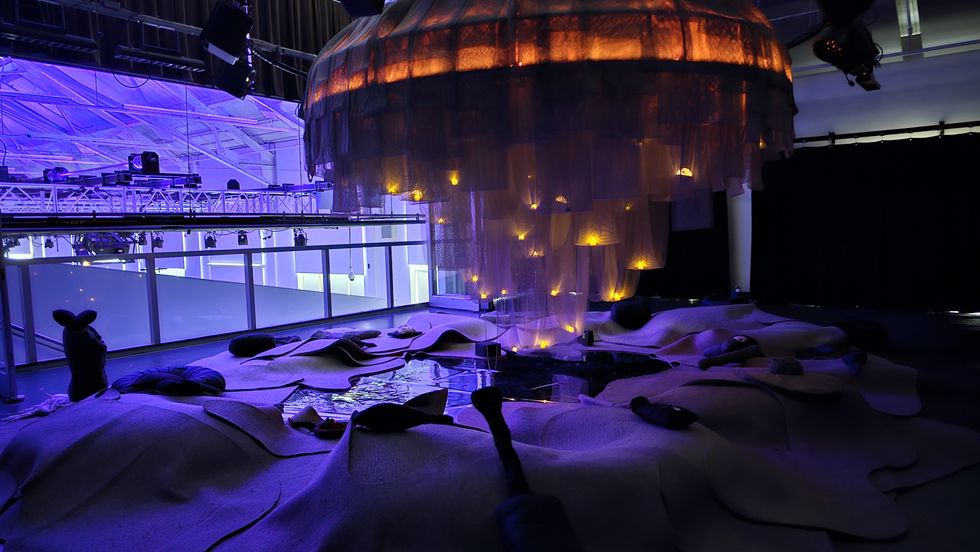
In one nook, an eight-hour film by Lina Gainer, titled "Sleep Hotel," documents a day in the life of a hotel cleaner, seen through a GoPro. It was intended to be screened for people with insomnia in hotel rooms. "There's a kind of irony where you're watching someone do all this work of cleaning a room where she cannot sleep," said Kaminska.
Another cornerstone of the exhibition is a photo by Mile Ex artist Paul Litherland titled "Dead." The work, according to Thain, speaks to a broader theme of rest in the arts community. "I was thinking about art rest, like how do artists rest? How do you make a living as an artist in this city? It's becoming harder. So, how does the city care for you?"
Thain's commentary shines a light on an often overlooked aspect of the work-sleep dynamic, especially in a city teeming with creativity like Montreal. You can always head upstairs to relax under the glow of "The Lantern," a massive chandelier that offers a cushioned space to reflect on such questions.
"InSomnolence" invites you to step into a dreamy world, to interact, reflect, and perhaps, doze off a bit. It's an exhibition that prods you to view sleep not merely as a biological need, but as a social phenomenon, and even as an art form.
So, don't sleep on the chance to catch forty winks amid art installations that spark thought and conversation. After a visit, you might not see your nightly routine the same.
@mtlblog This Downtown Montreal sleep oasis is a dreamy fusion of art & technology with nooks to nap. 😴💤 #montreal #mtl #montrealartist #mtlartist #art #interactiveart #artexhibiton #sleep #napping #nap #mtltiktok
InSomnolence
When: Through July 13
Where: Coeur des science de l'UQAM, 174, rue Président Kennedy
Cost: Free
